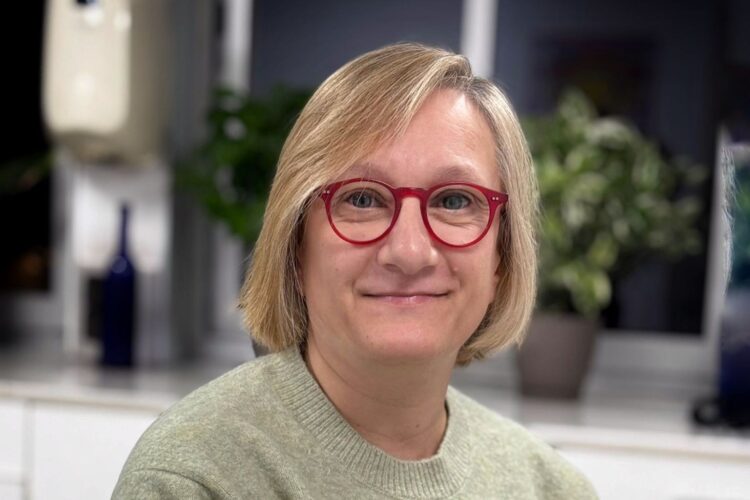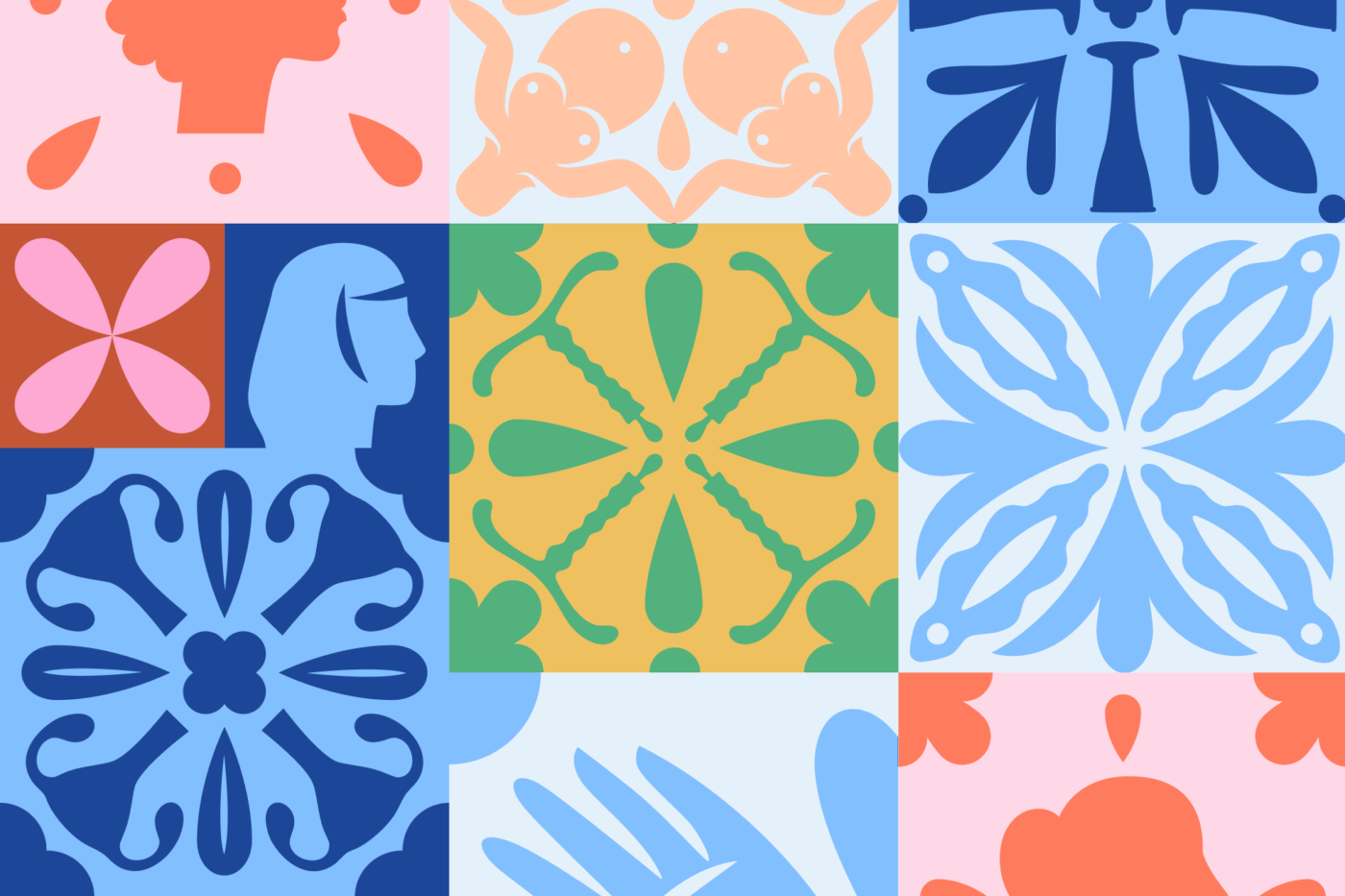A Day in the Life of Eva Vázquez Segura, Midwife Working in Trans-Affirming Care

Eva Vázquez Segura is a midwife based in Catalonia, in the north-east of Spain. She qualified as a midwife in 1997 and has spent most of her career working in the Serveis d’Atenció a la Salut Sexual i Reproductiva (ASSIR), the public services dedicated to sexual and reproductive health. From the beginning, she was drawn to this field: as a nursing student, a placement in an ASSIR clinic showed her what respectful, person-centred sexual and reproductive health care could look like. When Spain reopened midwifery training after a long pause, Eva did not hesitate. She sat the exams, specialised, and never left primary care.
Over the years, Eva has become a key reference in inclusive sexual and reproductive health. Alongside her work in ASSIR, she completed a Master’s in Women’s and Gender Studies, focusing her thesis on sexuality in young trans people. This academic path deepened her understanding of the barriers trans and non-binary people face in health systems, and positioned her to help change practice from within.
In 2016, Eva joined Trànsit, a pioneering multidisciplinary public service for trans health, created in 2012 by a midwife and a gynaecologist from her own ASSIR. Trànsit offers psychological, social, and medical support, hormone counselling and access to gender affirming interventions in a fully person centred, trans-affirming and depathologising framework. In addition, sexual and reproductive health care can also be provided. Support and care for transgender minors and their families, along with group activities, are also part of the model. Since 2012, the team has accompanied more than 7,000 people, and in 2017 Trànsit was recognised as the official entry point to the Catalan public health system for trans people.
Eva’s work in Trànsit is closely linked to her teaching at the University of Barcelona and her doctoral research on reproduction in non-binary people. She brings real experiences from her consultations into the classroom, highlighting how essential it is for midwives and other health professionals to understand gender diversity, avoid assumptions, and provide respectful, inclusive care. She sees her role as connecting practice, research, and education to expand what midwifery looks like, and who it is for.
This is a day in her life:
On a Trànsit day – I work in the service two days a week – my morning starts quietly at home. I wake up early and make a large mug of black tea with milk. I like having this calm time to read or plan my day.
On some days between September and December, I go to the University of Barcelona to teach on the sexual and reproductive health nursing course. I introduce themes of gender and sexual diversity and try to make sure students see these topics as core professional knowledge, not an optional extra. When a student tells me, “This class mattered to me,” it confirms that this work is necessary.
I have an early lunch around 12:30. It feels very early for Spain, but I start at Trànsit at 14:00, so I adjust. I am lucky to live close enough to walk to the clinic. That short walk helps me shift my focus and prepare for the afternoon.
At Trànsit, my work is mainly first assessments and follow-up visits. A first visit lasts about 90 minutes. That time is essential. I listen to each person’s story: why they have come, how they define themselves, their family and work situation, what they need right now, and what they hope for. I explain all the resources available in the service: social work and psychological support if they think they need it, access to group sessions and peer spaces facilitated by the Trànsit team, information on hormones, access to gender-affirming interventions, and options for fertility preservation.
Follow-up visits are usually 45 minutes. We review how they are doing, adjust plans, answer questions, or support them through different steps of social or medical transition. Many people have delayed seeking care because of previous bad experiences in health settings, so building trust is central.
Part of my day is also spent providing remote assistance. People reach Trànsit through a simple email address that is shared on the website and across health services. This makes the service very accessible, but it also means a large volume of messages: questions about treatments, reports needed for GPs, clarifications about tests, requests for appointments. Responding takes time, yet it is one of the reasons people feel close to Trànsit. They know someone will read them and respond with respect.
On Wednesdays, I am at Trànsit in the morning. We start early, with consultations from 08:30. Later in the morning, the whole team meets. We are a multidisciplinary team consisting of two midwives, one gynaecologist, three family doctors, two psychologists a social worker and three health agents who also form the administrative staff. My fellow midwife and one of our health agents are currently coordinating the service. Having trans and non binary people on the team is crucial and we are proud that our team reflects the diversity of the people we serve. These meetings are vital. We discuss cases, share doubts, review complex situations, and make sure decisions are centred on the person and aligned with our trans-affirming approach. It is a cohesive team, and that sense of shared purpose makes the work sustainable.
The rest of my working week is at the ASSIR, where I provide wider sexual and reproductive health care: contraceptive counselling, STI testing, cervical screening, antenatal and postnatal care. Occasionally, I see trans and non-binary people there too. For me, this is part of the goal: that any sexual and reproductive health service can welcome them safely, without them needing a specialised door.
When I finish for the day, I try to disconnect a little, although with the doctorate this is not always easy. I enjoy going to the cinema, travelling, or spending time with family or friends. For more than 20 years I have travelled regularly with a group of midwives who have become like a small community to me. I have also gone through my own process of non-motherhood, supported by a mutual help group. These personal experiences remind me how important it is for everyone to find spaces where their lives are understood and respected.
Her Reflections
What Eva values most in her work is how much she learns from the people she meets. Listening to trans and non-binary people has widened her view of the world and of midwifery. Their stories reveal how many barriers and acts of everyday violence still exist in health systems, and how urgently new narratives about bodies, identities, and families are needed.
Working in Trànsit inspired her doctoral research. For years, many non-binary people and trans men told her they thought adoption was their only possibility for growing their families, not because they did not want to carry a pregnancy, but because they had never seen or heard other options. That lack of references pushed Eva to study their reproductive experiences and strategies. Creating visible, accurate narratives is, for her, part of changing reality.
Eva is clear about what midwives and other health professionals can do now:
“Always ask for people’s names and pronouns. Use neutral language and reflect the words people use to describe themselves and their bodies. Make no assumptions of people’s relationships, families, or bodies. Remember anyone with specific anatomies and needs may benefit from midwifery care, regardless of their gender identity.”
She often uses practical examples of how midwives can support gender diverse people and respond to needs that are sometimes overlooked in health services, such as trans men or non binary transmasculine individuals who may still require chest examinations, cervical screening, contraceptive advice or support with chestfeeding, and trans women or non binary transfeminine individuals who may need breast cancer screening, support with a neovagina, or induced lactation.
Her dream is simple and ambitious: that services like Trànsit become unnecessary because every midwife, every GP, every paediatrician, and every specialist is trained and confident to provide person centred, inclusive, trans-affirming health care. A world where trans and non-binary people can access care close to home, without fear, without stigma, and with their dignity fully respected.
The world needs One Million More Midwives
Sign the petition and help us collect one million signatures to demand one million more midwives — and the investments needed to make it happen.
